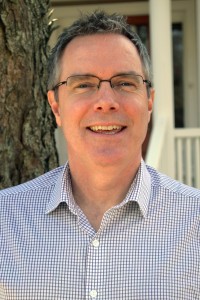Hello, my name is Robert Allan, and I am in the final weeks of a PhD at Dalhousie University in Halifax, Nova Scotia, Canada. In August, I will move to Denver, Colorado to take up a position as Assistant Professor at the University of Colorado in the MA Counselling- couple and family concentration program. My PhD research focused on the experiences of couple and family therapists learning an evidence-based practice. I also have an interest in the subjective experience of shame which I am currently exploring with gay male couples. I am interested in the impact on their relationships, how they navigate attunement, and how experiences of shame are navigated by gay male couples. I will briefly touch on each of these areas.
Couple and family therapists are rarely the focus of research yet are critical for positive outcomes in therapy. The field of couple and family therapy includes diverse theoretical approaches that focus on relationships and the environment as part of the understanding of how challenges emerge for couples and families as well a source of resources to help deal with those challenges. Initially developed in the medical field, evidence-based practices now pervade mental health fields including couple and family therapy. The attempts to integrate evidence-based approaches into the practice of couple and family therapy have been controversial resulting in passionate and at times divisive dialogue. The aims of my PhD research were to explore what influenced a couple and family therapist to use an evidence-based practice and what do couple and family therapists experience when learning about and using an evidence-based approach to working with couples and families.
The theme of shame emerged in my PhD research from half of the participants as part of their development with the evidence-based practice they were learning. One of the most evocative passages from a research participant focused on “this shame piece in [her]” that was linked to an experience with a family member 30 years prior in this participant’s life. I focused on shame as a social emotion which is a category of theories that assumes that social relationships are a basic biological need (Greenberg & Mitchell, 1983) and understand shame as a threat to the social bond (Scheff, 2000).
Scheff’s approach to shame incorporates both a negative sense of the word as well as its positive intentions, for example having a sense of shame, adhering to social norms. Each of these theoretical approaches to shame suggest that the mechanisms of shame are social and along with Sartre’s conceptualisation of shame, I used these theories to further my interpretation. Sartre (1956), for example, wrote about the role of the Other as an integral part of the experience of shame noting that “I recognise that I am as the other sees me”.
My interest in the experiences of shame for gay male couples developed with a colleague in sociology with whom I had previously done health promotion research about gay men. Same sex couples face unique challenges including the personal experiences of anti-LGBT prejudice and discrimination, relational ambiguity, and insufficient social support. Complicating these challenges is the absence of positive role models and limited research about therapeutic approaches with gay male couples. Leverage for a more productive understanding of the use or function of shame emerges if we reflect on shame’s role in what has been described as the politics of recognition (Honneth, 1996).
My research interests include exploring emotional attunement for gay male couples some of whom have been brought up with significant experiences of shame and some currently deal with the day-to-day need to navigate around big and small prejudices.
